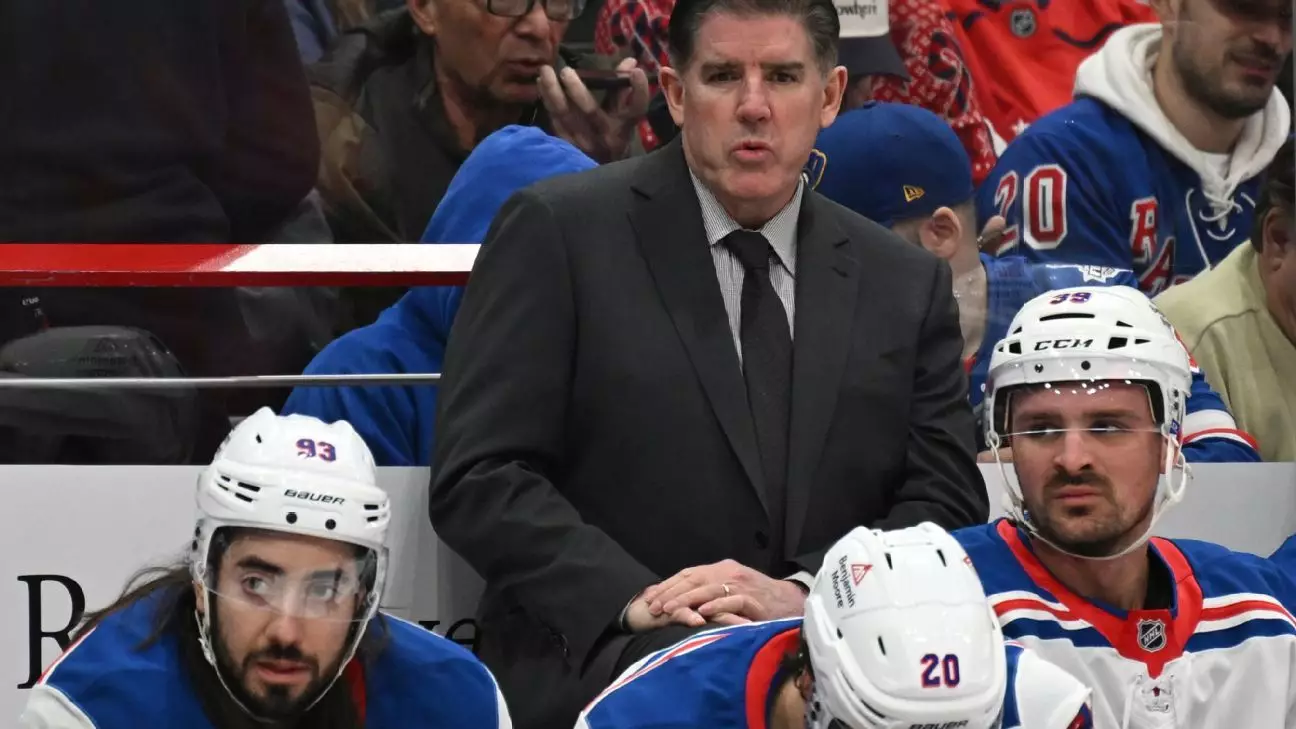The New York Rangers find themselves ensnared in a perplexing predicament, having recently endured a disheartening stretch of losses that has led to whispered concerns about their season. Their disappointing performance is poignantly illustrated by their recent defeat at the hands of the Washington Capitals, where they succumbed to a 7-4 loss. With only 5 wins in the last 21 games, the Rangers have plummeted from a comfortable playoff position to sharing the bottom of the Metropolitan Division with their long-time rivals, the Islanders. As the situation unfolds, questions abound regarding the team’s morale and potential pathways to recovery.
Mika Zibanejad, the Rangers’ highly compensated center, articulates the sentiment of the locker room: “What’s our option? Just say, ‘We’re done with the season?’ No, we can’t.” This statement underscores the challenges the team is grappling with as they face a daunting reality—one that requires resilience and determination in the face of adversity.
The slippery slope of inhibition can quickly lead players down a path of doubt, making the task of rekindling their competitive spirit all the more crucial. Filip Chytil, who tallied a goal during the game against the Capitals, reflects on the current mindset when he says, “At some point, it must turn around because last year we won the Presidents’ Trophy, and we can play hockey.” Indeed, they earned accolades in a previous season, and a sense of familiarity with success should theoretically serve as a powerful motivator. Despite fundamental skill and competency being present within the roster, this year’s struggles appear inexplicable.
Coach Peter Laviolette’s tenure faces scrutiny as discussions about his future emerge amid the team’s dismal performances. The inability of marquee players such as Zibanejad, Artemi Panarin, and Adam Fox to consistently perform has led to speculation about whether a change behind the bench might be necessary. Laviolette himself acknowledges his team’s multifaceted issues, stating, “It’s a little bit of everything,” which opens the door for a broader examination of the challenges they face—not just a robust power play but issues regarding defensive breakdowns and even-strength mishaps.
Faced with mounting pressure, General Manager Chris Drury has already initiated significant changes to retool the roster in his quest to reinvigorate the team’s fortunes. The departures of crucial players such as captain Jacob Trouba and winger Kaapo Kakko have sent ripples through the locker room, signaling that difficult decisions must be made to rebuild team chemistry and competitive edge. The urgency instilled by these trades reflects not only a desire to stave off mediocrity but also an acknowledgment that the current makeup of the team requires re-evaluation.
It’s critical that the Rangers harness the wisdom gained from previous seasons, especially one that culminated with impressive accolades. Adam Fox points to a collective attitude shift that is essential for overcoming their current plight: “That’s an attitude and mindset thing. Coming out of the break, we’ve been playing a lot better hockey.” This sentiment points to the importance of unity within the squad and the belief that improvement is achievable, even amidst significant adversity.
While the Rangers remain stranded at the bottom of the division, the path to redemption isn’t absent of hope. There lies an inherent belief within the team that hard work will eventually yield results, as articulated by Zibanejad: “From the top down, we have to keep working. If it wasn’t hard, everyone would do it.” Such an acknowledgment is vital for the players, serving as a reminder that success often requires grappling with challenges and overcoming hurdles.
With the season waning, the call for collective effort grows stronger. It’s a time for introspection, for evaluating not just the strategies on the ice but also the camaraderie that contributes to winning culture. The Rangers may be mired in a tough spell right now, but if the players draw on the strength of their shared experiences and tap into a commitment to improvement, they can still carve out a pathway back to contention as they strive to reclaim their once-prominent status in the NHL.

